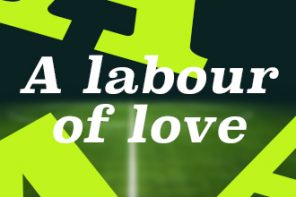The accusations started before Tottenham had even conceded the first goal. West Ham were matching an opponent who required victory, finally rising to the occasion in the London Stadium rather than shying away from it. By the time the final whistle had blown, even those in the television studio were labelling Spurs as ‘bottlers’. Thousands of social media accounts agreed with enthusiasm.
But the notion that Tottenham ‘bottled’ the Premier League title race is ludicrous. The only reason that a race even existed was because Mauricio Pochettino’s team created one, winning nine straight league matches between February 26 and April 30.
Spurs have dropped ten league points in total since December 12, three fewer than any other team. They will end the season as the closest challengers to a rival that could yet record the second highest points total in Premier League history. But none of that matters. Spurs are merely the latest in a long line of falsely accused bottlers for the apparent crime of finishing second.
The most amusing of the liberally applied ‘bottler’ tags came from the mouth of Manchester City’s former chief executive Garry Cook over the failed signing of Kaka in 2009. “If you want my personal opinion they bottled it,” said Cook. “He clearly was for sale but we never got to meet with the player, the behaviour of AC Milan got in the way.” Fighting talk, Garry.
It’s also worth dwelling on the Daily Mirror’s headline in March 2012, which read ‘Steve Bruce: City have bottled the title race’. It’s probably worth waiting until the fat lady has completed her encore before making such a bold accusation. The bottlers went on to lift the trophy, of course.
There are times when the phrase may be accurate, if a little glib. Teams have been guilty of losing their arse (the phrase ‘bottled it’ originates from Cockney rhyming slang – bottle and glass) over an extended period of time with the finishing line in sight.
Newcastle United in 1995/96 are the famous Premier League example, blowing a 12-point lead and conjuring images of Kevin Keegan slumped over the advertising hoardings at Anfield, a man broken by Alex Ferguson’s mind games and his own magnetism towards tragicomedy.
Bruce, who so badly misjudged Manchester City in 2012, admits that his own Manchester United team was guilty of the crime 20 years earlier. While Newcastle mustered 17 points in their final ten league games in 1996, United managed only 13 in 1992. A six-point lead became a four-point deficit.
“To overcome the psychological barrier of going so long without winning the league – we found that was the most difficult thing when we won it in ’93,” said Bruce. “It doesn’t matter how many talented players you have, make no mistake, you get nervous. Back in ’92, we lost a hell of a lead to Leeds and in the end we choked, if I’m being honest.”
Part of the reason for the increase in the use of the phrase is the rise in tribalism among supporters. If the love fans hold for their own team hasn’t dimmed, the antagonism towards rival supporters has certainly shifted. The violence of the past has been replaced by a more general animosity fuelled by mockery and gleeful celebration of failure. Giving credit to a team other than your own is now tantamount to treason; any opportunity to delight in the downfall of a rival must be enjoyed.
That’s all pretty predictable and harmless, but there is also an increasing trend in teams and players being labelled ‘bottlers’ – not just from supporters, but also neutrals. Never before has second place been more emphatically classed as the first loser.
It probably stems, in part, from the extreme views now awarded precedence in modern media. With online journalism largely given away for free (with many outlets struggling to retrospectively put up paywalls), the industry relies on advertising. The stronger the opinions, the greater the audience, the more money being made; or so the theory goes. We are all guilty of knee-jerking but, at its most extreme, this model creates a false picture of events – as it was with Spurs’ title challenge.
The adage that bad news sells better than good has never been more appropriate. Headlines about a team giving it their all but falling just short simply do not sell in the way they may have done previously. Reason goes out of the window. To say someone ‘bottled it’ has become an all-too-easy, and profitable, way of explaining a surprise result without having to offer proper analysis.
But to genuinely understand the circumstances, and appreciate football’s nuances, it should be crucial to ask why something has happened, rather than resorting to simplistic, trite explanations. Just as defeats are not always catastrophic failures, failures are not always indicative of a lack of mental fortitude. It is possible to dwell on the positive connotations as well as the negative.
Sometimes matches don’t go the way we expect. Expectations are normally based on form; form can be overthrown. That’s why we watch in the first place.






